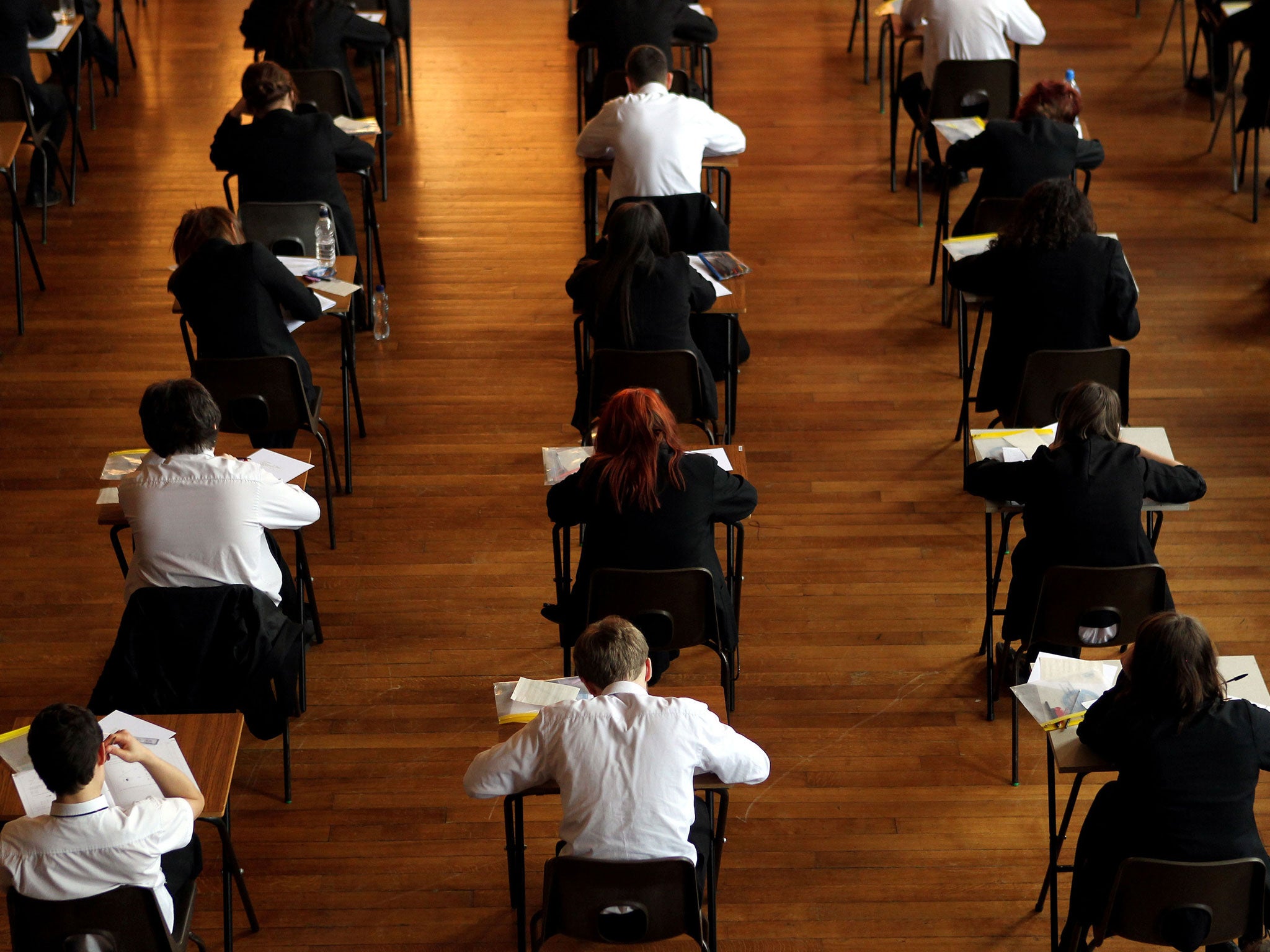Children in isolated schools 'do worse in GCSE exams than those with another school just round the corner'
'I used to work in inner London - in sight of Canary Wharf and the children could see aspiration out of the window'

Your support helps us to tell the story
From reproductive rights to climate change to Big Tech, The Independent is on the ground when the story is developing. Whether it's investigating the financials of Elon Musk's pro-Trump PAC or producing our latest documentary, 'The A Word', which shines a light on the American women fighting for reproductive rights, we know how important it is to parse out the facts from the messaging.
At such a critical moment in US history, we need reporters on the ground. Your donation allows us to keep sending journalists to speak to both sides of the story.
The Independent is trusted by Americans across the entire political spectrum. And unlike many other quality news outlets, we choose not to lock Americans out of our reporting and analysis with paywalls. We believe quality journalism should be available to everyone, paid for by those who can afford it.
Your support makes all the difference.Children in isolated schools do worse in GCSE exams than those with another school just round the corner, according to new research.
The impact is greatest on disadvantaged pupils entitled to free school meals - whose attainment declines with every additional kilometre separating their school from its nearest neighbour.
However, the research, by the Future Leaders Trust, also shows all pupils perform worse in schools that are further apart from their neighbours.
Researchers looked at exam results over the past three years - and found that - whereas 49 per cent of disadvantaged pupils achieved five A* to C grades including English and maths in schools less than a kilometre apart - the percentage declined to just 36 per cent in those that were further than ten kilometres away from the next school.
The figures for pupils from better off homes ranged from 67.7 per cent for those with an alternative school less than a kilometre away to 62.2 per cent for those whose nearest school was more than 10 kilometres away.
Kevin Rowland, headteacher of the Oasis Academy in Immingham - which is 5.5 kilometres away from its nearest school and just outside Grimsby, put the trend down to a lack of aspiration in isolated communities.
It is naturally isolated surrounded by fields,” he said. “There is literally nothing in terms of amenities when it comes to residents. There’s a housing estate and a port. There is very little mobility in the town - no-one coming in.
“The one big thing was Tesco’s planning to open a supermarket - but it didn’t happen.”
He added: “I used to work in inner London - in sight of Canary Wharf and the children could see aspiration out of the window. There were plenty of universities around, too.”
Since arriving as head, Mr Rowland has abolished work experience - pupils, he said, were spending two weeks in relatively poor quality work experience.
“We are saying ‘you can go to university - university is an option for you.”
Instead, every one of the students goes to a university and spends time writing a dissertation.
“I think people brought up in a city expect to succeed,” he said, “but it’s not the same in isolated communities.”
The Future Leaders Trust is a UK charity providing training for headteachers and development training for middle and senior school leaders.
Join our commenting forum
Join thought-provoking conversations, follow other Independent readers and see their replies
Comments